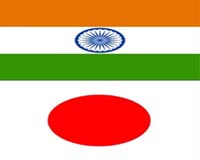| . |  |
. |
Hong Kong (AFP) Dec 27, 2009 Explosive growth in economic and political power ensured that the past 10 years set the foundations for what many analysts predict will be the Asian Century as the world tilts firmly eastwards. Many dangers lie ahead, but observers say the world's two most populous countries -- China and India -- appear on course to define the decades to come after the American Century and the British Century before that. "Yes, absolutely, I think this decade demonstrates the real promise of Asia," said Alan Dupont, director of the Centre for International Security Studies at the University of Sydney. "The last two years in particular have seen a sea shift in real power and I think that's been highlighted by the travails the Americans and the Europeans have had after the global economic and financial crisis. "It has really focused everybody on the fact that China has now arrived and India is not that far behind, and power really has shifted to the East and away from Europe and North America." China had been "a rock of stability", Dupont told AFP. Time magazine chose "The Chinese Worker" as a runner-up for its annual Person of the Year award in 2009. Robert Broadfoot, managing director of the Hong Kong-based Political and Economic Risk Consultancy, agreed that the past decade belonged to Asia. "There is a shift of the assets and, with that, political power towards China in particular and Asia in general," he said. But if the tilt from West to East was sustained in the decades ahead, it would be more appropriate to call it the Chinese Century, not the Asian Century, Broadfoot said. The statistics speak for themselves -- blistering economic growth rates of more than 8.0 percent in China -- while Western countries slumped into recession. The United States now counts China as its biggest creditor nation. But the economic figures -- India also achieved growth rates of more than 7.0 percent -- are only part of Asia's rise. The political power that goes hand-in-hand with economic power means that no global agreements can be viable without the approval of China and India, as this month's climate talks in Copenhagen showed. And beyond that lies "soft power" -- the sort of cultural influence wielded last century by the United States in particular, from Hollywood through pop culture to fast food. As an example, Dupont pointed to China's Confucius Institutes set up around the world to compete with other organisations that project national cultural influence, such as the British Council or France's Alliance Francaise. Chinese-born actors such as Gong Li, Jet Li and Zhang Ziyi now have Hollywood star power. Writers Ha Jin and Yu Hua are acclaimed internationally. The Chinese government has reportedly set up a 6.5-billion-dollar fund to expand the global footprint of state-controlled media companies like Xinhua, China Central Television and China Radio International. Hosting the Olympics last year was an emphatic declaration of China's global arrival and some of its sportsmen -- such as basketballer Yao Ming and former world-record hurdler Liu Xiang -- have celebrity status. Chinese scientists are becoming more prominent, with the nation's space programme leading the way. China was the world's third nation to put a man in space and has ambitions to send a man to the moon. India has also enjoyed success in space with the announcement in September that its first lunar mission, Chandrayaan-1, had found evidence of large quantities of water on the moon's surface. The path to Asian dominance is strewn with obstacles, however, with weaknesses in democratic and social institutions and widening wealth gaps seen as potentially dangerous roadblocks. Minxin Pei of the Carnegie Endowment for International Peace says Asian leaders lack the "visionary ideas" that were a hallmark of US dominance, and that China-style autocracies are inherently unstable. "Although Asia today may have the world's most dynamic economies, it does not seem to play an equally inspiring role as a thought leader," he wrote in Foreign Policy magazine. Dupont at the University of Sydney also questioned whether Asia's racing start to the century will be sustainable over the next 50 to 100 years, given the environmental havoc caused by rapid development. But if Hollywood is a guide, Asia is set to triumph. In early 20th century movies, the Chinese were represented by mustachioed evil genius Fu Manchu. In this year's big-budget disaster flick "2012", China helps to save mankind from apocalypse.
Share This Article With Planet Earth
Related Links Learn about the Superpowers of the 21st Century at SpaceWar.com Learn about nuclear weapons doctrine and defense at SpaceWar.com
 Japan PM heads for India
Japan PM heads for IndiaTokyo (AFP) Dec 27, 2009 Japanese Prime Minister Yukio Hatoyama left for India on Sunday for talks with his counterpart Manmohan Singh aimed at strengthening security and economic cooperation. Hatoyama will also meet Rajendra Pachauri, head of a Nobel-winning UN panel of climate scientists, to discuss how to generate momentum on tackling global warming after the Copenhagen climate accord failed to reach binding targ ... read more |
|
| The content herein, unless otherwise known to be public domain, are Copyright 1995-2009 - SpaceDaily. AFP and UPI Wire Stories are copyright Agence France-Presse and United Press International. ESA Portal Reports are copyright European Space Agency. All NASA sourced material is public domain. Additional copyrights may apply in whole or part to other bona fide parties. Advertising does not imply endorsement,agreement or approval of any opinions, statements or information provided by SpaceDaily on any Web page published or hosted by SpaceDaily. Privacy Statement |